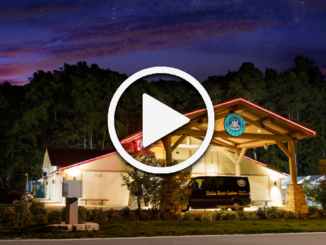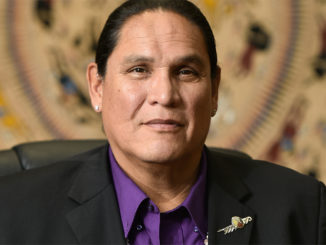Chris Faria sits down with Kell Houston, Raving Partner, Entertainment, at Raving NEXT to talk about contract challenges with VIP Events at Tribal Casinos
Modified Transcript:
Chris Faria: Hey everyone, it’s Chris Faria from Tribal Gaming and Hospitality Magazine. We are here at Raving NEXT, and I’m catching up with Kell Houston, president of Houston Productions, and longtime Raving partner for all things entertainment. Hey Kell, welcome to TG&H On Air.
Kell Houston: Well, thank you Chris.
Chris Faria: We were talking off-camera about some challenges that some Tribal casinos are facing in regards to, let’s call it “super fan events” and how that impacts the contract and the buyers need, when you’re trying to negotiate. Can you explain the challenges and how you are helping your Tribal clients?
Kell Houston: Yeah, over the last few years artists have created what they call a “VIP fan experience,” and it’s another incremental source of revenue for them. It’s a way for them to touch with their fans a little more personally. These fan club experiences are upsells on your casino property and there’s no desire for any kind of a revenue split, which is an issue because we know we do merchandise and there’s a revenue split with a casino. This has gotten real crazy because casinos need anybody selling anything on their property to have a business license or a vendor license. These people come in with their outside company and to manage this fan club experience. This fan club experience could be a private meet and greet with the artist signing merchandise, (providing) swag, any kind of little bonus thing.
It could be a couple hundred bucks, it could be four to five-hundred dollars per person. So what happens is, when this event happens at your casino, if there’s anything that goes wrong, the customer blames the casino and (it can me) a real ugly situation. Casinos don’t have any control over these people on their property and it’s like a rock and a hard place right as many of these major artists really depend on that revenue flow from the fan club experiences.
To give you an example, I was telling Chris about the BTS show at the Allegiant Stadium in Vegas. The fan club experience generated millions of dollars for that artist — and it’s everything from having your picture taken with a cutout or with one of the BTS guys to getting signed merchandise, to getting anything you can imagine that they can add to that experience. Then they charge that fan for.
When it comes down to it, the responsibility (of the success of the event) falls on the casino and the visibility of the casino’s brand is at stake if something doesn’t go right. We’ve been arguing about this in the industry for the last three or four years. Covid of course stopped everything in its tracks, but it’s a real challenge; something we have to work through and the industry isn’t being open or forgiving about it and it’s becoming deal breakers for a lot of these properties.
Chris Faria: Kell, you are someone, as an entertainment buyer, that can help Tribal casinos walk through this process since you have a lot of years of experience to help them do so. Especially those casinos that might do it internally. They might need a little bit extra help.
Kell Houston: Yeah, it’s actually a battle. Tribal casinos would like to have a VIP meet and greet of their own for their higher tier players. The artist comes in and wants to charge for this VIP experience. It goes like this: we’ll give you this and you give us that, and these little tradeoffs to make it work. But the, the bottom line is it’s another point of negotiation that we have to address in Tribal gaming.
Chris Faria: Kell, thank you so much for stopping by today talking about this issue and to our audience, if you have any questions about this feel free to reach out to editor@tgandh.com and we will get you hooked up with Kell.



